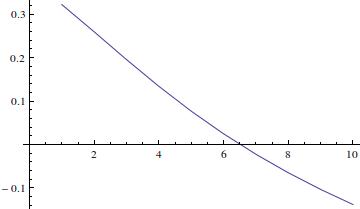I have just upgraded to the new version of Mathematica because of its new built-in ParametricNDSolve function. I need to solve a first-order non-linear ordinary differential equation that has two parameters. I have no problem obtaining appropriate solutions to this equation, but once I have the solution I need to integrate out the dependence on the parameters. For instance, I would like to write something like
sol=ParametricNDSolveValue[{-y*a'[x]==(a[x]^2-1)f[x]+a[x],a[-10]==0.6},a,{x,-10,10},{y}]
Integrate[sol[y][x],{y,0,1}]
If I have an InterpolationFunction which has two arguments I can very easily integrate over one of the two arguments, but this does not seem possible to do with a ParametricFunction. The best idea I have had so far is to form an InterpolationFunction from the ParametricFunction and then integrate from there, but that seems inefficient and I would like something a little faster and more straightforward. Any help would be greatly appreciated.

